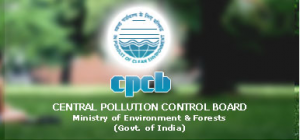Central Pollution Control Board promises to provide technical leadership for “science-based environmental management on the occasion of its 46th Foundation Day.
Central Pollution Control Board (CPCB) announced its plans for the next decade (until 2030) on its 46th Foundation Day celebrations on 22nd September. They would provide guiding policy decisions to the government and technical leadership for “science-based” environmental management.
CPCB is established under the Water (Prevention and Control of Pollution) Act in 1974 and it is also entrusted with the powers and duties to prevent and control Air pollution (Air (Prevention and Control of Pollution) Act, 1981). They provide technical services to the Environment and Forests Ministry.
They are planning to revamp laboratories with facilities for monitoring substances which have a gamut of health impacts, such as Persistent Organic Pollutants (POPs), Volatile Organic Compounds (VOCs), and toxic air pollutants. All the work will be guided by science, air, and watershed approach, which would be a regional approach prioritizing pollution reduction strategy.

Their approach is a regional approach of management, factoring in health hazards among many other parameters in the policy plan. CPCB is responsible for the air and water quality standards in the country which include the National Clean Air Programme (NCAP). The program aims at the reduction of particular matter (PM) by up to 30% in the next 5 years on an annual average level in more than a hundred cities.
21 out of 30 most polluted cities in the world are in India and CPCB is trying to reduce/control the pollution by training and development of manpower and organizing different activities for promoting awareness at different levels of Government and public, providing relevant data and scientific information, and rendering technical inputs for the formation of various programs and national policies.
Their goals include an in-depth study on the nature of pollution, the use of satellite-based data for air quality monitoring and to start environmental research, development, and computational laboratory. The CPCB officials said that their landmark river basin studies implemented by the Centre to reduce pollution in River Ganges became the pivot for the Ganga Action Plan.
The member-secretary of the CPCB, Prashant Gargava, stated that they achieved a 25% reduction in PM pollution in Delhi, the national capital, in about the past four years.
Central Pollution Control Board (CPCB) along with State Pollution Control Boards (SPCB) are responsible for the prevention and control of environmental pollution and the implementation of legislation regarding this.
Photo credits – Wikipedia and The Economic Times
Information credits – Hindustan Times, Wikipedia, and cpcb.nic.in














Add Comment